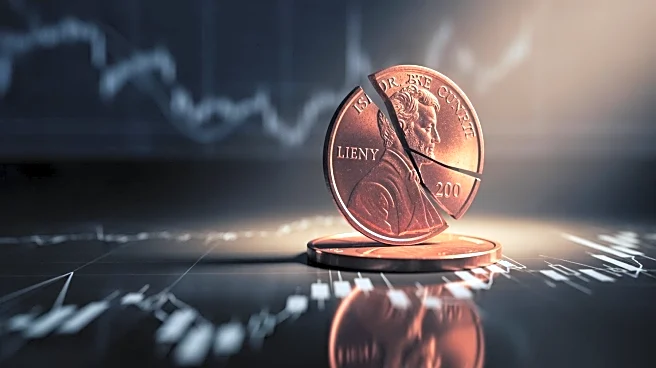What's Happening?
EnerSys, a global leader in stored energy solutions, has announced the receipt of a $137 million tax refund related to the Internal Revenue Code Section 45X Advanced Manufacturing Production Credits. This refund, received on August 25, 2025, is linked to the sales of batteries produced by EnerSys in the United States. The company, which operates through four business lines—Energy Systems, Motive Power, Specialty, and New Ventures—has emphasized its commitment to bolstering U.S. manufacturing and supply chains. Andrea Funk, EnerSys Executive Vice President and Chief Financial Officer, expressed satisfaction with the refund, highlighting the company's dedication to domestic production. Shawn O’Connell, President and CEO, reiterated the importance of these credits in supporting EnerSys's mission to provide high-performance energy solutions.
Why It's Important?
The $137 million tax refund underscores the significance of U.S. government incentives in promoting domestic manufacturing, particularly in the energy sector. EnerSys's receipt of this refund highlights the potential financial benefits for companies investing in U.S.-based production. This development is crucial for the energy industry, as it may encourage other companies to enhance their domestic manufacturing capabilities, thereby strengthening the U.S. supply chain. The refund also reflects the broader economic strategy of supporting advanced manufacturing, which can lead to job creation and technological advancements within the country. Stakeholders in the energy sector, including manufacturers and policymakers, stand to gain from such incentives, which can drive innovation and competitiveness.
What's Next?
EnerSys is likely to continue leveraging U.S. tax credits to support its manufacturing operations and expand its market presence. The company may also explore further investments in its domestic production facilities to maximize the benefits of such incentives. Additionally, other companies in the energy sector might follow suit, seeking similar tax advantages to enhance their production capabilities. Policymakers may consider expanding or extending these credits to further stimulate domestic manufacturing, potentially leading to increased lobbying efforts from industry stakeholders.










